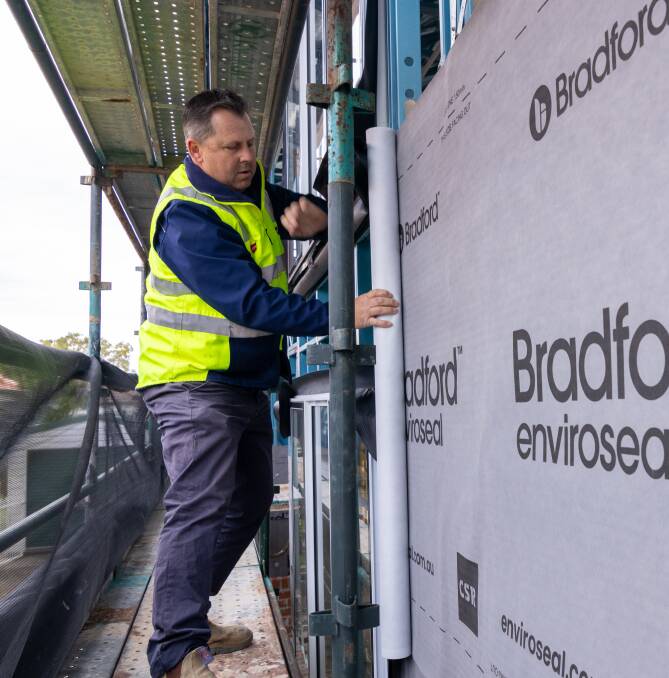
As a homeowner, building a house comes with many responsibilities. With the growing awareness of our environmental footprint, it's important that our structures are healthy and built to last.
As much as the Australian landscape and areas where we live are varied, so too is the climate which can have an impact on the integrity of our builds often without us even realising.
One such impact, particularly relevant to our diverse climates, is the challenge of moisture management. In tropical areas, high humidity can lead to condensation that can compromise building structures.
Similarly, in cooler regions, cold periods can result in condensation inside external walls, compromising the materials. To address this, it's crucial to have proper insulation and use climate zone appropriate wall wraps to provide protection to water sensitive materials.
"For Australian homeowners, understanding and mastering moisture management is not just about maintaining the structural integrity of their homes; it's about creating spaces that stand the test of time in terms of durability, comfort, and health," said Todd Hudson, product manager of contructions fabrics for Bradford Insulation.
Here, Bradford Insulation highlights the importance of prioritising moisture management in our homes:
1. Prevention of structural damage
Moisture, when left unchecked, can condense into liquid water inside the structure of the home. Over time, this can lead to mould, wood rot, corrosion of metals, and the deterioration of other materials.
By using vapour permeable wall wraps, you can reduce the risk of moisture being trapped in these critical areas, helping the structure remain dry and maintain the integrity of your home.
2. Avoiding mould and mildew growth
Mould and mildew thrive in damp environments. When moisture accumulates in walls or ceilings, it creates a perfect breeding ground for these fungi. Not only can mould and mildew damage the surfaces they grow on, but they can also pose significant health risks, including respiratory issues and allergic reactions.
3. Energy efficiency and cost savings
Moisture can compromise the effectiveness of insulation. Wet insulation doesn't perform as well, meaning your heating or cooling system will have to work harder to maintain a comfortable temperature. This can lead to higher energy bills.
By managing moisture, you ensure that your insulation remains dry and works efficiently, saving you money in the long run.
4. Enhanced comfort
A home that effectively manages moisture feels more comfortable. It prevents the cold, clammy feeling that can come from dampness. Proper insulation and wall wraps such as Bradford Enviroseal help maintain a more consistent indoor temperature, making your living spaces comfortable and enjoyable.
5. Preservation of property value
A home with moisture problems can lead to a significant reduction in its market value. Issues like mould, structural damage, and compromised insulation can be red flags for potential buyers.
By proactively managing moisture, you're not only protecting your investment but also ensuring that your property retains its value.
Questions to ask your builder
1. What type of insulation and wall wrap is best suited for our local climate?
2. How do you ensure a seamless installation of wall wraps to prevent potential moisture ingress points?
3. Does the insulation and wall wrap you're using meet or exceed local building codes and regulations for moisture management?
4. Do the insulation and wall wrap products you recommend support sustainability?
5. Have you or your team undergone specific training or certification in installing these products to ensure they function optimally?

